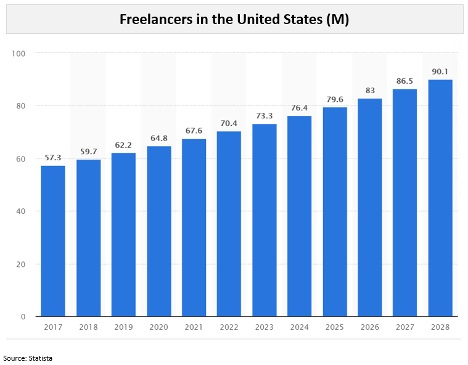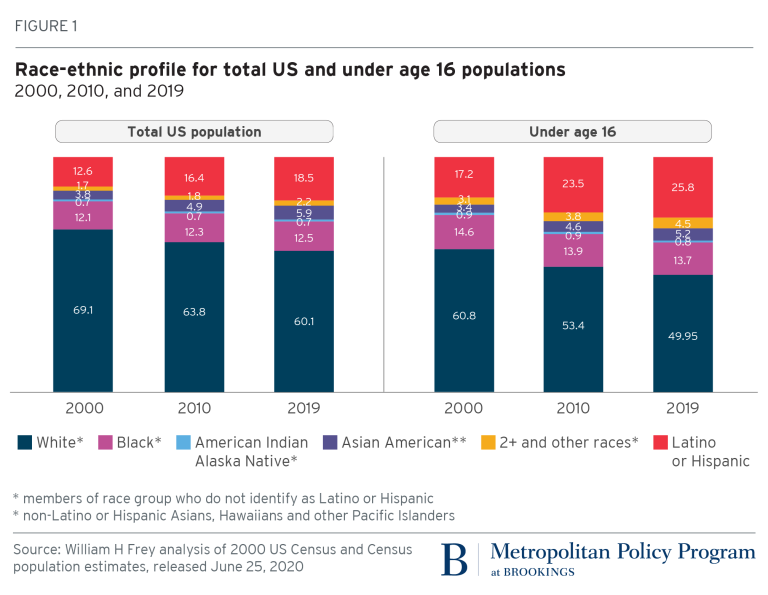Anyone who joined the workforce before January 2020 would most likely not have been familiar with the following terms: AI, Remote-Hybrid Work, Web 3, NFT’s, Spatial Computing, GPT, Metaverse, “Woke” or “Quiet Quitting”
Today, in every organization large and small The critical discussions are a) about the coming impact of technology from AI to Web3, b) the future of the workspace as firms struggle to manage the balance between remote and in-presence work, and c) the shifting beliefs about work driven by the emotional impact of Covid and new generational mindsets.
The where, who, what and why of work have transformed more in the past four years than in any decade or more before.
Talent is asking their managers what do you do?
Management is asking their talent to work harder, show-up and grow-up.
IBM and Gallup release research indicating that many jobs will disappear and almost all jobs will be transformed by AI.
Apple, Meta, and other companies continue to believe that despite recent setbacks the future of computing will increasingly be three dimensional and spatial, changing how and where we work.
Every company is grappling with how best to be inclusive while also ensuring they can attract and retain talent whose mindsets have changed from one balancing work and life to one asking how work fits into their lives?
Across all companies of every size and in every category, the single biggest question is “How do we remain relevant in transformative times?” Not just relevant as businesses grappling with new business models and competitive landscapes but as individual talent and leaders facing a future that seems to be shape-shifting constantly.
One way to remain relevant in these times is to a) truly understand ALL the factors that are in flux and not expect that mandates that force people back to the office are likely to solve the challenges we face, b) to re-train and upgrade our mental and emotional operating systems to align with new realities and c) both learn and unlearn so we can deal with the changing Where, Who What and Why of work.
1) Where: The future of work will most likely be hybrid with different companies combining talent in some combination of in-person/in-office presence and remote work. Even if one’s own company is fully remote or fully in-person a firm’s future talent and existing partners and Clients are likely to have their own unique ways of combining in-person and remote or in global firms’ different countries will have different models. In addition, in the United States by 2027 the free-lance work force will be bigger than the full-time work force meaning that many companies will have talent outside the firm working with people in the firm. Thus, it will be key to learn to manage and communicate diverse across different models of work.
In person interaction is critical for learning, relationships and culture but to ensure that its benefits are maximized we need to think places ( events, restaurants/bars, offsites, and programming learning and interaction in an office) as a spectrum of ways to leverage the benefits of being together vs bringing people into an office to do what they did at home with headphones on their ears and hustling to find cubicles in spaces that have been optimized for a world that has past.
In addition, lets also realize that it is management as much as staff that needs to learn how to lead and coach versus boss and monitor which may be the real issue on the where one works question. Management which has not been trained or sensitive to know how to manage a new paradigm of work cannot solve this shortcoming by forcing people back to the office!
Also after years of companies swearing by data, personalization and the need for agility a one size mandate model is neither data driven, personalized or provides the flexibility needed for an agile world.
2) Who: In the United States the population under 21 years old is already Caucasian minority and over forty percent of the population is multi-ethnic. Every new hire graduating from school is likely to be a “minority” though the “minorities” now are greater than the “majority”. It is not just a change in ethnicity but a different make up in gender (far more women at work and far more women than men graduating from school every year) and sexual preference (13 percent of the population define themselves different than straight).
Sixty-six percent of baby boomers believe in capitalism while only 22 percent of Generation Z do. In addition, we are likely to see a significant aging of the workforce as populations shrink, the country gets older, and companies work to find ways to retain talent and skills even if in a part-time basis. And the free-lance population which will be greater than those fully employed wonder about this fixation on where one works.
3) What: IBM believes 30 percent of jobs will be replaced by AI in 5 years.
While there can be a debate about jobs lost there is less debate about jobs changed.
A recent survey by the New York Times indicated that “A range of new research has analyzed the tasks of American workers, using the Labor Department’s O*Net database, and hypothesized which of them large language models could do. It has found these models could significantly help with tasks in one-fifth to one-quarter of occupations. In a majority of jobs, the models could do some of the tasks, found the analyses, including from Pew Research Center and Goldman Sachs.”
Basically, up to 75% of white-collar jobs that required a Graduate Degree will be changed by AI, with 64% of Four-Year Degree jobs but only 6 percent of jobs that require a high school degree will be impacted.
The more educated the more likely that AI will impact one’s job. This July 2023 Pew Report is a must read to see how you and your job might be impacted by AI.
Having ones job impacted by or exposed to AI does not mean one will lose one’s job or lose pay but it means that everyone will need to a) embrace the technology, b) adapt their ways of working utilizing AI as a co-pilot, side-kick, first-draft thought starter to build on and c) companies and talent will need to build and hone skills that complement the AI which are likely to be those of empathy, curiosity, communication, collaboration and new forms of creativity.
Or as someone said it is not a human who will lose their job to AI but to a human who is using AI if they themselves refuse to use it.
But AI which will be a critical technology is not the only one that will have great impact. The concept of 3 D spaces whether we call it Metaverse, Virtual Reality or Spatial Computing will require new sets of skills to navigate and manage and find ways to sell and build brands and companies.
4) Why? There is a changed relationship between people and work driven by a) the existential crisis that was Covid which gave people a new sense of agency over not just their personal lives but work lives b) the completely different mindset of Gen-Z who will be a third of all employees and have not chosen to sacrifice themselves for their jobs and c) a declining population which is placing more power in the hands of employees and talent.
The chart above from Deloitte shows that the focus on personal change and well-being might be helping to tip the scales of work-life balance. Compared to one year ago, the percentage of consumers who feel they are finding more time to enjoy today (34%) significantly outnumbers those who feel they are working harder to get ahead (22%) ). This is a healthy portion of people prioritizing their personal time over working more, particularly considering the financial challenges many faced throughout the pandemic and rising prices for everyday purchases.
"It is not where work takes place but where work fits into life"
"It is now about life-work integration not about life-work balance"
Heather E. McGowan who in both business and academia and has been called by Tom Friedman an"Oasis of Insights"was a guest on “What Next?” a podcast I host.
She shared amazing ideas and thoughts on how managers cannot lead by using the ways they were lead, how coaching is key vs bossing because the future is about collaboration and not competition and Gen Z will spit your command into your face.
Listen below:
https://open.spotify.com/episode/7GftBuMWYPbhI1q32GMHbV?si=pcv9VaOuTk2dNnZ0CJ17XQ
These four shifts of a new work force, a new workspace, a new set of enabling work technologies and a new mindset have all emerged in the past three years and will scale and transform business.
In a world of such change it will be critical for all of us to upgrade our own skills and be retrained for the transformation of work versus thinking this is about finding a silver bullet like getting back to the office.
Posted at MediaVillage through the Thought Leadership self-publishing platform.
Click the social buttons to share this story with colleagues and friends.
The opinions expressed here are the author's views and do not necessarily represent the views of


